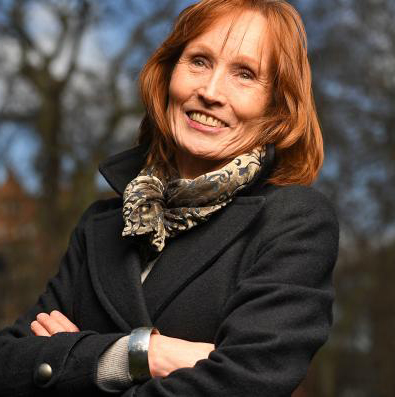Comprehensive Future’s Chair, Dr Nuala Burgess, reviews a busy year of campaigning.
 In many ways, 2023 been a very good year for Comprehensive Future. For a campaign group which has relied so heavily on political lobbying, the lack of interest in education policy as parties gear up for next year’s election, could have been a real challenge. Instead, it forced us to develop our campaigning in new and exciting ways. This year has seen the birth of no less than four major projects, all of which circumvent politicians and make us less vulnerable to the whim of political interest. More importantly, these projects will be of immediate use and relevance for the many children who sit the 11+ and their families and promise outcomes of lasting impact.
In many ways, 2023 been a very good year for Comprehensive Future. For a campaign group which has relied so heavily on political lobbying, the lack of interest in education policy as parties gear up for next year’s election, could have been a real challenge. Instead, it forced us to develop our campaigning in new and exciting ways. This year has seen the birth of no less than four major projects, all of which circumvent politicians and make us less vulnerable to the whim of political interest. More importantly, these projects will be of immediate use and relevance for the many children who sit the 11+ and their families and promise outcomes of lasting impact.
The first strand of our new campaign strategies fulfils a pledge we made at last year’s AGM when we passed a motion promising to investigate the effect of the 11+ on children’s wellbeing. Convincing people of the stressful impact of 11+ – and that it’s a high stakes test with far greater consequences for a child’s future schooling than SATs – was actually a lot harder than we imagined.
Nonetheless, I am immensely proud be able to tell you that we end 2023 with the support of academics from three leading universities, all of whom are really enthusiastic about engaging in research focused on the 11+. We are at the very start of two major research projects, both of which name Comprehensive Future as a commissioner of the research and as experts in the field of selective education.
The first of these will be based at Manchester University where Professor Kevin Woods has secured funding for a doctoral research project, which will examine children’s perceptions and experiences of the 11+. What really excites us is about this research project is that it will be carried out within Manchester University’s department of educational psychology with plans to involve primary school pupils, their parents, and educational psychologists.
We have also instigated a research project involving educational psychologists Dr Maria Livanou of King’s College, London, and Dr Vivek Furtado of Warwick University. This project takes a different approach by researching young people’s experiences of primary to secondary school transitions. A key area of focus will be the experiences of young people whose schools transitions are determined by an 11-plus test. Currently being piloted with a series of focus groups, our lead researchers are quietly confident that findings related to the 11-plus will be significant enough to attract further funding. Research can then focus exclusively on the impact of the 11-plus on children’s educational confidence and self-esteem.
Our second campaign strategy concerns a long-promised project to get involved in grassroots campaigning. We started with an event in Canterbury, right in the heart of selective county Kent. This event was hosted by TUFTT – the “Time’s Up For the Test” group made up of Comprehensive Future committee members and co-opted non-CF members. Madeleine Holt presented her fantastic short film featuring a range of people’s views on the 11-plus and Comprehensive Future’s Campaign Officer Jo, gave a presentation offering ideas for achieving the phasing out of selection. Opposition to the 11+ is a pretty lonely experience in selective areas so we were really pleased to gather a good crowd of local campaigners and to find out in what ways we can support them.
As part of a campaign initiative to offer constructive solutions for the phasing out of selective schools, we are also proud to announce a project for which we were awarded grant funding to create a school admissions Chatbot. This is not as wild as it may at first seem. Put simply, the CF Chatbot is a School Admissions Facilitator aimed at helping school governors and education authorities to make their school admissions more inclusive. It is a ‘backdoor’ way to helping selective schools that are open to becoming more inclusive to access advice and support anonymously.
We know that we have little chance of influencing policy on selective education until the next Government feels safely bedded in. Our aim therefore over the next couple of years is to focus on generating new evidence. As well as proving the negative impact of the 11+ on children’s wellbeing and future learning, we hope that new evidence will persuade future policymakers that selective education can no longer play a part any forward-thinking education system.
In the meantime, Comprehensive Future will continue its fight for the right of every child in England to enjoy the kind of socially inclusive schools enjoyed by children in Scotland and Wales, and indeed the whole of Europe.
Thank you very much once again to all of you for your continued support from me, Comprehensive Future’s Vice Chairs Melissa Benn and John Edmonds, Jo our Campaign Support Worker, and everyone on the Comprehensive Future Steering Committee.






